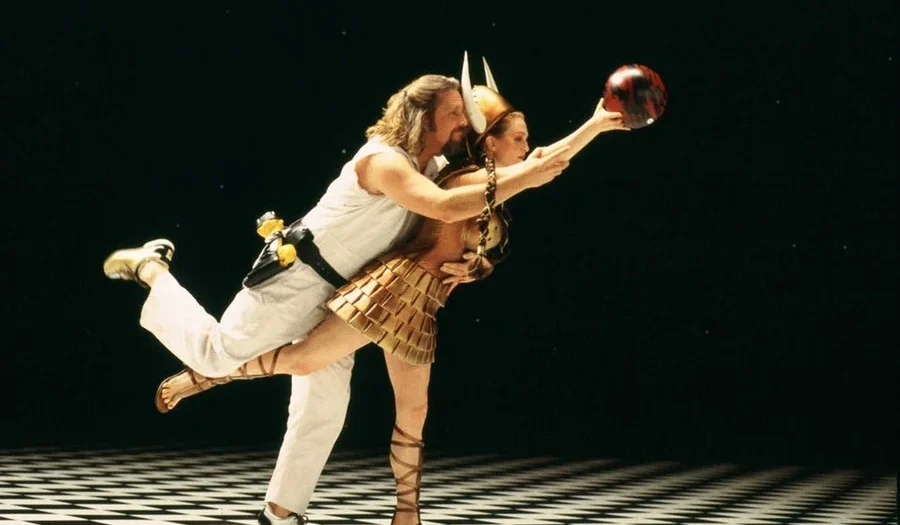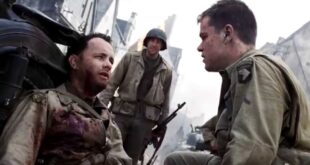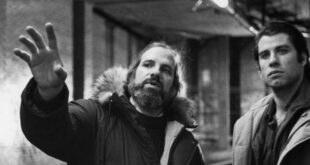I firmly believe that movie lists express cinematic taste and personality. I wouldn’t say I like making movie lists to hit all the marks people expect, depending on the list. The most excellent satisfaction I get from making movie lists and Unsung Cinema is someone saying they saw what I wrote, checked out the movie because of it, and now love it. I like hearing their opinions even if they don’t love what I recommend. I like getting people to see films they haven’t heard of or seen before. That’s why I love movie criticism, to champion film. Not to always dump on movies (though that’s fun too) but to do like what Siskel and Ebert did, use their platform to passionately get people to see films they would not have otherwise checked out.
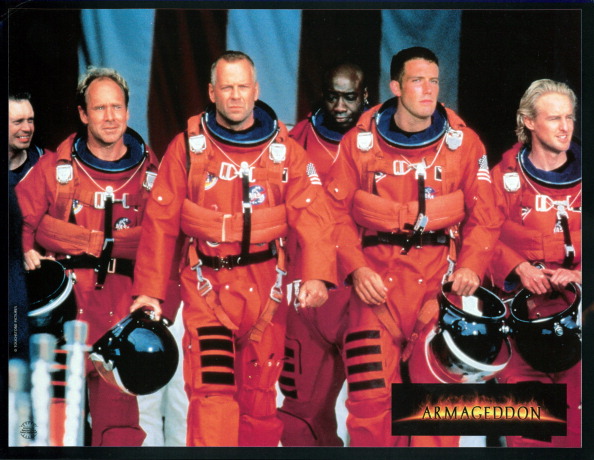
Celebrating its 25th anniversary, I decided to make a list of the Top 25 films of 1998. It’s often an underrated year of the 90s, between two years dominated by mega cinema in 1997 and 1999. Indeed, throughout most of the beginning of 1998, Titanic (released in late 1997) was the film that dominated the box office—finishing an incredible 14 weeks in a row at the top of the box office. Lost in Space finally knocked it off, which opened in early April 1998. It was finally knocked out of the box office top 10 in mid-June 1998. Still, it was a great year at the movie theater, dominated by big box office hits like There’s Something About Mary, Saving Private Ryan, Armageddon (the top-grossing film of the year), Godzilla (lol), A Bug’s Life, Deep Impact (the other asteroid film), Mulan, Dr. Doolittle, The Waterboy, The Truman Show, and Lethal Weapon 4. Going to the cinema in 1998 was still in style as we were still in the early days of the internet. 1998 also set the stage for the comic book extravaganza world we live in now with the release of Blade, which grossed over $131.2 million worldwide and helped set up the success that Marvel is today. Interestingly to note, that film was also rated R.
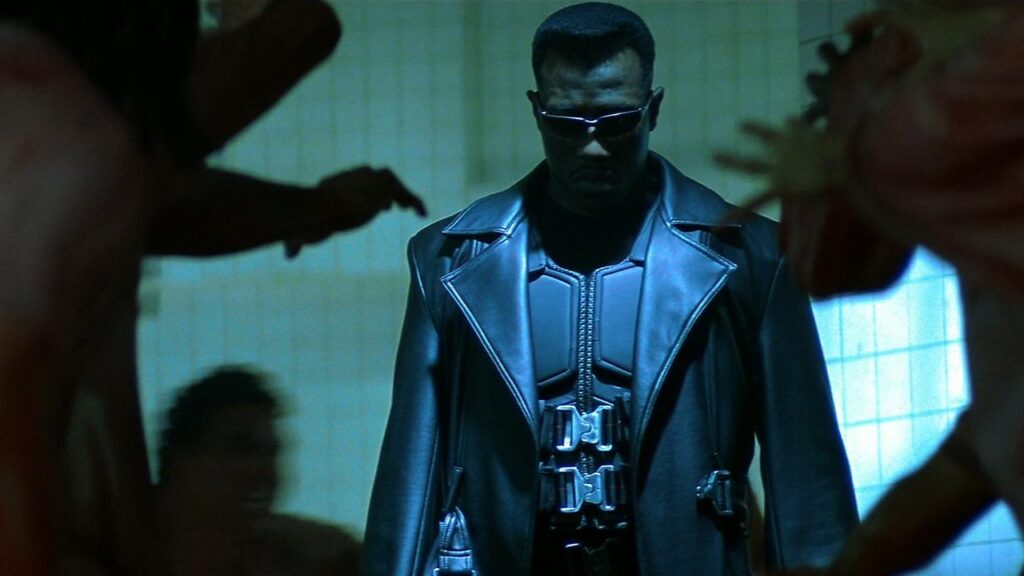
There are some films released in 1998 that, when you look back on them, haven’t aged well, like Lethal Weapon 4, Godzilla, or The Waterboy, but the year overall, I feel, is an underrated one. It saw the return of cinema after a twenty-five-year hiatus of visionary director Terrence Malick, who fashioned a surreal, unique war epic called The Thin Red Line with an A-list cast. Spielberg’s Saving Private Ryan often overshadows it, but The Thin Red Line goes beyond in its examination of war and life than anything Saving Private Ryan could imagine. The year also saw the release of one of the greatest cult movies ever, the Coen Brothers’ The Big Lebowski. Oddly enough, it was not a smashing success when it came out, a common theme among some films released in 1998, like Gilliam’s Fear and Loathing in Las Vegas, which would go on to become insanely famous later on. ‘Two stoner comedies were released in 1998 – Half Baked and Dirty Work – that would become significant cult hits years later. Those two movies are some of the most quotable of 1998. Other cult movies of 1998 include Can’t Hardly Wait, Dark City, BASEketball, Rushmore, Pleasantville, Rounders, Wild Things, and American History X. It also introduced us to Christopher Nolan (Following), Darren Aronofsky (Pi), Gaspar Noé (I Stand Alone) and Guy Ritchie (Lock, Stock, and Two Smoking Barrels). All those films are cult films in their own right.
Which movies will appear on my Top 25? Well, let’s find out.
25. The Negotiator (d. F. Gary Gray)
Perhaps preposterous, but F. Gary Gray’s The Negotiator is tension-filled entertainment from start to finish and always a movie I enjoyed watching growing up. The script is flawed, but the proceedings are carried heavily on the backs of Samuel L. Jackson and Kevin Spacey, who are both excellent. The supporting cast includes David Morse, J.T. Walsh, and Paul Giamatti. The film was not a surefire success at the box office, released in the summer of 1998, but it received great fanfare.
24. Wild Things (d. John McNaughton)
In pre-internet porn, Wild Things was known as cinema’s Holy Grail of nudity. Featuring a blisteringly hot Denise Richards and Neve Campbell, the sex appeal in Wild Things is out of this window, but the movie itself is also trashy, lurid fun with many great twists and turns. There are so many twists and turns in Wild Things that the film still explains itself during the end credits! Bill Murray turns up as a shady lawyer and is hilarious as well. My advice is to go with it and enjoy this awesomely fun, sexy film.
23. Smoke Signals (d. Chris Eyre)
A groundbreaking film for Native American culture as this was the first time mainstream American audiences were introduced to Native culture and how they feel about the world and current events. Smoke Signals is honest, humorous, soulful, and poignant. It’s about subverting the audience’s expectations of Native culture and people.
22. Belly (d. Hype Williams)
Wildly controversial and despised when first released, Belly is now seen as a kind of pop culture rap avant-garde masterpiece. The film features stunning visual imagery and represents the pinnacle of the music video’s influence on modern American cinema. It’s not a perfect film, but I often return to it just to get caught up in the hypnotic world Hype Williams creates.
21. Zero Effect (d. Jake Kasdan)
This is such an underrated gem! As a big fan of Bill Pullman, this is one of the very best performances of his career. It’s the feature writer-director debut of Jake Kasdan, an updated version of Sir Arthur Conan Doyle’s short story “A Scandal in Bohemia.” Ben Stiller is also fabulous as well. This represents a time when Stiller experimented with more challenging projects in independent cinema. While not perfect, what makes this film is the performances of Pullman and Stiller.
20. Lock, Stock, and Two Smoking Barrels (d. Guy Ritchie)
Guy Ritchie’s directorial debut is a pure blast from start to finish. Perhaps the best British crime film since The Long Good Friday. The dialogue is Tarantinian, but Ritchie adds enough British flavor to make Lock Stock a unique film experience. It’s more an exercise in style than anything else but some of the colorful characters you come to care about. The film launched Ritchie, Jason Statham, and ex-footballer Vinnie Jones into stardom. The best thing about Lock Stock is it led to the more polished Snatch in 2000.
19. What Dreams May Come (d. Vincent Ward)
It’s no secret that this film is visionary. Academy Award-winning special effects were created by the same group that would later do the bullet time effects in The Matrix. In addition to visual effects that are vivid and still hold up today, What Dreams May Come is an involving story regarding depression, suicide, and loss. It’s not your typical film, and it’s been criticized for being all over the place and not containing much plot. While maybe fair, we shouldn’t dismiss the film outright. What Dreams May Come has plenty going for it, including a rare empathy and understanding of heavy subjects you don’t see in many movies.
18. Small Soldiers (d. Joe Dante)
This film is so underappreciated and underrated—a truly subversive ride from the director of Gremlins. The technology and computer effects in this film were ahead of their time. The voice cast is excellent. There’s also the neat little thing of making the American soldiers the bad guys and the Gorgons who are supposed to be the bad guys’ good guys. It’s an exciting film. RIP Phil Hartman.
17. Following (d. Christopher Nolan)
Christopher Nolan’s debut film sets the standard for your typical Christopher Nolan film – unusual narrative structure, characters in suits, and conflicted main characters. Shot in grainy black and white, it proves that Christopher Nolan could craft something unique and original on a shoestring budget. Although it lacks the polish of Memento and later works like Inception, it’s an essential and great film in its own right.
16. Ronin (d. John Frankenheimer)
This old-school action picture would be at home in the 1970s. One can almost think of Ronin as the last significant action movie of the 20th Century. Shot by one of the best journeymen directors ever to do it, John Frankenheimer, Ronin is known chiefly for its sublime car chase sequences. It’s never less than absorbing at any moment.
15. Enemy of the State (d. Tony Scott)
What’s most remarkable about this film is how it predicted the post-9/11 world we inhabit now. It also is a sequel to Gene Hackman’s 1974 film The Conversation. In the tradition of great paranoia thrillers, there’s a lot of truth about what the CIA does in the movie. Back in 1998, this was almost considered cartoonish to portray the CIA this way. Now it feels right at home, and Enemy of the State has aged tremendously well.
14. Bulworth (d. Warren Beatty)
I love this movie and always have. Warren Beatty deserves credit for going all in on his criticism of politics in general. More specifically, it’s a film about the failures of the neoliberal Democrats of the nineties. It’s also insanely funny and memorable.
13. He Got Game (d. Spike Lee)
He Got Game is a very soulful and passionate film about basketball and basketball at a particular time and place. It features an always-game Denzel Washington in an excellent performance, and Spike got an outstanding performance out of Ray Allen. I know it wasn’t much of a stretch for Allen, but he comes across convincing as an actor and more than holds his weight with Denzel.
12. Pi (d. Darren Aronofsky)
The most interesting of all the directorial debuts of 1998 was Darren Aronofsky’s Pi. This saw the young auteur experiment with different aspects of filmmaking to carve his style. One could say that about the incredible Requiem for a Dream as well. This film takes you into a paranoid person’s mind and is filmed to make you feel. Like all the great directors, Aronofsky is adept at this.
11. Rushmore (d. Wes Anderson)
Wes Anderson was also carving out his style in the late 90s, and Rushmore is an example of a filmmaker finding his voice. Full of dry humor, unique writing, and a perfect soundtrack collection, Rushmore is still an anarchic work of art. It’s a pessimistic ally hopeful film.
10. Pleasantville (d. Gary Ross)
A truly unique experience. I remember having a profound impact on me when I first saw it. Pleasantville is the kind of provocative entertainment I respond to. It de-myths the happy fifties. It’s funny but also poignant and deals with topics like racism and social change through television made during that time. As things become more accurate, the black and white turns to color. It’s a tremendous film.
9. Out of Sight (d. Steven Soderbergh)
Flat out one of the most remarkable films I’ve ever seen and represents a great time in cinema for excellent even-keeled crime thrillers that emerged after Pulp Fiction. Also, this movie oozes sexual charisma, and Clooney and Jennifer Lopez have never been better.
8. A Simple Plan (d. Sam Raimi)
Sam Raimi defied convention with this excellent Coen Brothers-esque crime thriller that’s a lot more sensitive and tragic than even their work. It’s a showcase for the brilliant acting talents of Billy Bob Thornton, but don’t sleep on Bridget Fonda or the late Bill Paxton as well. It’s a heart-wrenching film, one of the least talked about of the 90s.
7. The Truman Show (d. Peter Weir)
This was a popular one growing up. I remember watching it in school a few times—an excellent satire of reality television and celebrity obsession that still packs a poignant punch today.
6. Run Lola Run (d. Tom Tykwer)
Another showcase of cinematic creativity was Tom Tykwer’s nonstop action extravaganza, Run Lola Run. It’s experimental in style and uses frantic editing to keep the energy high. It’s relatively simple but frantically paced in a good way.
5. Dark City (d. Alex Proyas)
Dark City is one of the most visually striking films I’ve ever seen, a significant part of the visionary wave of science fiction films of the late 90s. It’s a gorgeous blend of science fiction, film noir, and mystery. At its core, the movie is about humanism. Unfortunately, Proyas hasn’t made anything near as excellent since.
4. Fear and Loathing in Las Vegas (d. Terry Gilliam)
Unjustly maligned when released 25 years ago, Terry Gilliam’s adaptation of Hunter S. Thompson’s work of gonzo journalism lives on as a significant cult masterpiece. It was an ambitious undertaking for Gilliam, known for his intensity and spontaneity. Like most Gilliam films, it attacks the senses and makes you feel like you’re on drugs. The whole movie is set up like an acid trip. That can be an uncomfortable experience, but to be fair, it’s meant to be.
Contrary to what some people think, it’s not an endorsement of drugs. The film is loaded with some uncomfortable and tense sequences. It’s all a masterful, exhausting, vivid, and memorable trip.
3. The Big Lebowski (d. Joel Coen)
What else can I contribute to a film that’s arguably the greatest of all cult films? The Big Lebowski is more than a movie. It’s an entire way of life. It’s a film that has lasted because of the memorable characters. It’s not a comedy that relies on gags. The humor is derived from who the characters are and how they react to this absurdist sleepy noir plot. It’s a film that will get a different reaction out of you every time because it is not repetitive. Each rewatch of the film elicits a new appreciation for what the Coen Brothers did.
2. Happiness (d. Todd Solondz)
https://youtu.be/xR-hvKuV0a8
You might come to hate me for recommending this film so highly. Flat out, it is one of the most uncomfortable movies ever made. It’s fucked up but brilliant. This is the kind of film where every single chuckle, you’ll feel guilty. It moves unpredictably between tragedy and humor. You’re constantly thrown off balance. Some moments are flat-out jaw-dropping. Seek it out. It’s one of the bravest comedies I’ve ever seen.
1. The Thin Red Line (d. Terrence Malick)
By now, you’ll notice my biggest snub is the exclusion of Steven Spielberg’s Saving Private Ryan. While Spileberg’s opening 20 minutes depict the horrors of war, I found the rest of the film to be pretty flag-waiving and standard. Terrence Malick’s The Thin Red Line is a proper examination of the horrors of war. It certainly won’t be for everyone, and it’s not a film that relies on rousing heroic action set pieces. Malick’s film is more profound than that, and over the years, I’ve been amazed at how much this film has touched my soul.
Simply put, every single moment of every frame means something. Maybe a glance a character has here or a simple gesture. It’s done in a dreamlike elegiac fashion with a voice-over of character thoughts substituting bland expository dialogue. It’s not only an anti-war film but an anti-anti-war genre picture. It’s one of the most thoughtful and profound movies ever about war and the human condition.
 Movie Finatics The Place for Movie Lovers
Movie Finatics The Place for Movie Lovers
